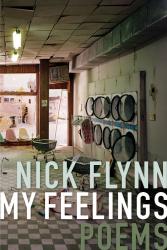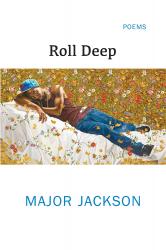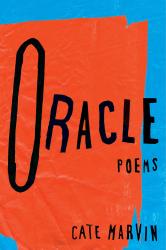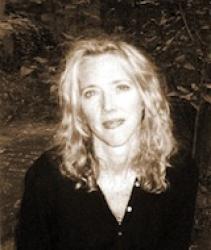


“Poetry Machines,” from Cate Marvin’s latest book, Oracle, is a feisty, forthright indictment of a certain kind of ubiquitous, prolifically churned-out, and navel-gazing personal lyric that will be familiar to readers of contemporary poetry (“I did not know I wished to relive with you / that morning you sat across the kitchen table from your father / in 1978”). “We need more cold sores,” she writes, addressing the unnamed, probably cobbled-together “fictional” author of said offensively pedestrian verse, “need more of what you / won’t give us; give us some true ugliness.” At the fearless heart of “Poetry Machines” is Marvin’s question: “What am I coming to poetry for?”
I’m looking for poetry I can’t resist. Poetry that arrests me, reads me its riot act, signals my rights, detains me with its linguistic and thematic force (high volume or seductively subtle), and liberates me with a subtext of human culpability, vulnerability, acceptance, and possibility, what Emily Dickinson would call its “costumeless consciousness.” Implicit in this desire are, of course, resistances: tension, torque. Struggle. Difficulty. In these engagements, in which reader and writer are, by turns and sometimes simultaneously, both victim and perpetrator, I am seeking a whiff of the “criminal”—which derives in part from the Latin word for crime, crimen, “charge, indictment, accusation,” and, according to some scholars, is related to cri-men (“cry of distress”). I mean “criminal,” then, not with regard to senseless acts of inhuman brutality or violent offense, but “criminal” in the sense of implicated, of involvement with what Dickinson (again!) referred to as the “Campaign inscrutable / Of the Interior.” I mean in no way to make light here of real crimes, those against people, animals, the environment. But I do come to poetry to experience and explore the kind of illumination that its “violent” collisions and paradoxes—isolato and community, word and world, complexity and clarity, letter and law—inimitably afford.
I doubt there’s anything—play, memoir, poem, grocery list—that Nick Flynn has written or will write that I won’t want to read. Over the years since the appearance of his first book, Some Ether, in eight books of poetry, poetics, drama, and memoir—whether delving into a mother’s suicide; the hive poetics of an eighteenth-century beekeeper; the complicated reunion with and subsequent death of a rogue, homeless father; addiction; parenthood; belief and faith; the mysteries of art (especially music and cinema); or the fear, power play, and trauma in our culture at large—Flynn has been willing to abide, to persist in his exploration of human “feeling,” despite a full awareness of the potential damage of and danger of doing so. In a “Questions of Faith” interview with Dianne Bilyak, Flynn speaks about his identification with the mythical Proteus (whom, he says, Stanley Kunitz called the “poet’s mythological figure”): “Proteus is all about change and transforming and entering into your fear. He’s about staying with your fear so that the thing you fear returns to its initial form so you can recognize it. You’re not going to be able to see clearly until you recognize it.”
In My Feelings, Flynn perhaps comes closer than in any of his previous books to recognizing the “initial form[s]” of that fear and its metamorphic consequences. The book’s trajectory includes the death of a difficult father and the prescient, daily presence of a growing daughter (“A few days later I will tell my daughter he is gone,” Flynn writes in “Mofuku,” “& she will turn it over inside her for a moment. Then she will announce, So both your mom & your dad are skeletons now …”). The book is rife with circumstances of great psychic flux. As its epigraph from Dickinson indicates (“You cannot fold a Flood— / And put it in a Drawer—”), the poems in My Feelings acknowledge their source in a possibly obliterating, primal enormity. Yet these language acts, these new poems, move into this flood (“this hunger // that pushes each wave”), nonetheless—with fear, but also with ruthless attention and with an ultimate trust in the solace of connection. “Communion,” Flynn writes in the oneiric, weirdly dystopian poem “Aquarium,” “Communion // is the word.”
My Feelings is divided into six sections—the “six universal emotions” (happiness, sadness, surprise, fear, disgust, anger), perhaps? Or could these six parts be a nod to the six days of creation/burden/work before the Sabbath day of rest? Certainly My Feelings evinces a deep awareness of spiritual and interdenominational religious contexts—there are poems about Moses (“Moses was offered a glimpse / of what? God’s ass? Eternity? // & it blinded him forever” from “Beads of Sweat”), for example, and about Saint Francis, along with allusions to passages from Kings and Samuel—“A man // is defined as one who ‘pisseth against / the wall’” (from “My Blindness”), and to the Annunciation, Catholicism, Buddhism, and all manner of apocryphal and mythic texts. Whatever Flynn’s designs are in terms of organization, the poems range through the full gamut of human “feelings,” and seem to require, then, some “containment,” though not in any programmatic way, which the book’s six sections provide.
My Feelings begins with weapons—a knife in hand in the opening poem, “Belly of the Beast,” and a gun in the following, “AK-47.” This latter poem is a PechaKucha, an experimental, non-literary-inspired form involving an enfilade of rapid-fire poetic “slides.” These potentially lethal, “loaded” instruments and their personal and cultural histories (addiction, parental suicide and abandonment) have dwelled “inside” the literal and bodily houses of the speaker of these poems for a long time (“inside this house a gun was cocked, uncocked, picked up, put down, aimed, lowered”). The speaker realizes that such violence “cannot // stand still inside” (from “Belly of the Beast”), and the book that grows beyond these incipient meditations becomes an exploration of how “the path each bullet makes through the air means only one thing: I am I am I am I am I am I am.” Conflated in this line are issues of personal and cultural identity as well as an allusion to God’s ineffable “I am what I am.” In section nineteen of “AK-47,” Flynn writes of a gun:
we could melt it down [could we?] into nails or bells or railroad tracks or a tin cup or a steel toe or a spool of wire or a shovel or a leg brace or a bedpan or scaffolding or a sewing needle or a typewriter or a hammer or a crutch or brake pads or a tiny crucifix
In the next section of the poem, the speaker wonders: “we cannot know what change will blossom, what will become, we cannot know if each bullet is not a seed.”
My Feelings overflows with grief, terror, anguish, guilt, and desire, and these emotions turn into one another everywhere, stemmed by the levees of Flynn’s lean, precise, often uncapitalized and understated lines. The poems rove through matters of history, gender, generational inheritances, and power/politics (in an especially fluid, provocative poem, “When I Was a Girl,” Flynn talks back, via a flock of role-exchanging children at play, to a passage from a letter in which Thomas Jefferson professes his admiration for Native-American peoples, but warns that “should any tribe be foolhardy enough to take up the hatchet at any time,” the nation need “only to shut our hand to crush them”). In a trio of related poems—“The When & the How,” “My Triggers,” and “My Feelings”—all three of which concern a couple whose mothers have each committed suicide, Flynn tries out an array of ways of coping with difficult emotion—indirection in “The When & the How,” elision in “My Triggers” (“We never discussed the why”), and a kind of Dickinsonian here/not here, choosing/not-choosing cross out in “My Feelings”:
I want to say we
really tried but maybe it was simply
the first moment I could be with someone
& say nothing & know
the other understood, or close enough, not be
overcome by my extravagant subterranean
desperate flimsy shameful crushing guarded
inappropriate dormant
backwoods forbidden closeted
broken limited insubstantial fucked-up wounded
invisible unspeakable meaningless delicate
uncontainable elemental filthy
shallow feral misguided
distant tethered painful tongue-tied
wayworn purple
all-encompassing epic god-given phantom oceanic
entitled formal flickering feelings.
So what is the fear that “returns to its initial form so you can recognize it” that these poems reveal? Flynn tells us, in “A Note on the Periodic Table,” that “archetypal elements are made up of a combination of atoms, except for fire, which is made only of itself.” Fire, then: pure, primal, sustaining, devastating, is the final “word”—an irreducible force, consuming, oblivious to all human travail. Implicit in this must be, of course, a kind of surrender—of form, of things as we’ve constructed and believed in them—even, or especially, painful things.
I think that Flynn’s “answer” in these poems, if there is one, is embedded in the rogue, pure speech of children, particularly that of a young daughter, who appears throughout the book, speaking her truth, unadorned and “mythic” in the way that only children’s perceptions can be. In “Father, Insect,” for instance, the daughter, who has been learning about evolution, wonders what her father was before he was her father: “then what were you— // a bug? We’d been looking at pictures / of cavemen, talking // about evolution, about where we / came from, about all those // who came before—Are they us? / she asks.” In “The Book of Ash,” the speaker walking along the beach comes upon a half-burned book, “abandoned in a dark pit // dug out of sand.” He brings it home. “I ask my daughter / not to touch it but of course she // touches it, her fingertips black now.” The book is nothing special—perhaps a test-preparation booklet, multiple-choice answers, but in response to what’s left of the book (“looks like wings”), Flynn shows us what he’s salvaged from the flood (tears, blood) of his feelings: Though we will all be burned, though there may be no ultimate transcendence, you can still “open what’s left”—the poem, the child, what is:
This is how flames
will paraphrase us all.
This book, this ash. I try to pull it back
together, I glue each wing
into a clean white book.
That “book,” as Flynn puts it in “Father, Insect,” is that experience “of which there is no end, / this chain of meaning, this // offering—the book we both will write / today into today into today.” That’s the metamorphosis: We see the wings we might once have worn—in our transgressions, our crimes, our childhood, our story. We write them into poems.
Like the speakers in many of Flynn’s poems, Major Jackson’s narrators are sometimes lonely, even melancholy isolatos ranging solo through the world, freighted by intense need, guilt, and culpabilities, yet driven, too, by desire for communion—with family, friends, poets, lovers. The titles of Jackson’s first three books—Hoops, Leaving Saturn, and Holding Company—reflect that pitch between belonging to one’s group and feeling that in seeking genuine, lasting connection one might as well, at times, be in outer space. What is being sought by the speakers in many of Jackson’s earlier works—lyrics of ardent eloquence, of linguistic and cultural fluency—is Eros, romantic love. Roll Deep (a phrase meaning, among other things, to travel in numbers, with a tightly bound posse of people who have your back as you have theirs) continues in this vein. Jackson is first and abidingly a love poet, a poet of love—but the poems move, well, more deeply into the ways in which erotic passion touches all passions—communal and national as well as personal. And where the “travel” in Jackson’s earlier work was largely interior—personal, aesthetic, intellectual—with most “exoticism” of the wider world keeping close company with the engine of coupling (in life, in art), the travel/travail of these new poems is more oceanic, more literal, more far-reaching. While it is true, as Frost said, that “a poet does not need to see Niagara in order to write about the force of falling water,” Jackson’s new poems partake in and of the world in a way that makes Eros mean something; they move, as Whitman put it, “out of the rolling ocean, the crowd,” and into deeper waters within. And vice versa.
Jackson organizes his new collection into five sections, each with an epigraph from sources as diverse as Langston Hughes (“My soul has grown deep like the rivers”) and George Gordon Byron (“Roll on, thou deep and dark blue ocean—Roll!”). Section one is comprised of a single poem, “Reverse Voyage,” a three-page, blank-verse meditation in which the speaker returns home to his native North Philadelphia in midlife. The poem alludes from the start both to Dante and the Middle Passage and suggests that the poem (and the book itself) will draw from European and African wells of history, legacy, and knowing:
My midway journey, my emancipated eyes
like runaways, exposed, and the row homes stacked
again, colorless drab LEGO blocks. I come
back to unlit alleys, avenues in sheaths of grit
As the narrator revisits his city of brotherly love from the distance of adulthood lived in a place “far away from city pigeons,” he filters, through “his palimpsest” of memory, pawnshops, streets, a grandmother (“clutching a tan purse, statelier than these lines”), shops, and early schooling—both literary/historical (“an old encyclopedia, a remarkable script, / a genuine compendium that shows his people’s Africa”) and street-related (“walking one day from middle school / when a boy lunged a fist in my stomach / like a question mark”). He arrives at an articulation of his version of Dickinson and Flynn’s flood:
I was already awake,
a surfeit of ambition struck: to roam
like decomposing clouds rolling deep,
re-forming constantly and away, above
toughened streets, above sunlit ruins
and scattering mounds. My eyes went
elsewhere or nowhere, open and determined.
The potentially obliterating deluge for Jackson, then, is partly his self-acknowledged “surfeit of ambition,” but it is also his ability to register place in his body (in “Reverse Voyage,” he writes, “I’m brought back to / the silence, oblique, hidden deep inside / the ventricle caves of my body’s chambers, / to nail salons, check cashing stores, pawnshops”)—to register everything, really, in his body (“as though excess were the body’s / supply at every given place”). There is a terror, a violence in this kind of imagination. These poems are ambitious, somatically geographical, and culturally historical. They journey out from a place of American nativity (complicated, of course, by the fact that almost any African American born in Philadelphia probably has a direct line back into oppression and the cruelties of enslavement) into sites of intellectual, personal, and geo-historical resonance, inspiration, and disquiet—Greece, Brazil, Spain, Kenya, Italy—but also the local gas pump, an airport’s security checkpoint, a mountain in Vermont.
In Roll Deep, the reader skitters in a heartbeat from the lush sensuality of European nude beaches (“the dazzling nipples of Americans redden / to rusted dials” from “The Cyclades Blues Suite / iii”) to the desperation of “The Dadaab Suite / i”: “What beauty can I spell in / this swelter of dust? Ridged like that farmer’s / goats, the ribs of others protrude and make a mockery / of my pen. Where is my empathy? The drought / is in my heart as well as on their skins.” Even as the speaker takes on the brave risk of articulating what he sees, “the rootless, the dispersed”—even as, back at his hotel, he “slide[s] / into the porcelain glove of [the] tub like an emperor”—the speaker confronts his vexed position as witness, voyeur, heir, “deportee,” participant, exile. This dilation and deluge of roles threatens to overwhelm him (“your eyes flooding to a monsoon”), but the speaker’s literal travels remind him that even as a child, reading and dreaming under violent circumstances, “he voyaged and broke free.”
This is a speaker who, by his own account, is “zealous for the taste of my life” (“Special Needs”). Zealous is, of course, cognate with the word “jealous,” and a mix of dangerous desire and brotherly love suffuses these poems, without apology, which is one reason for their attractive hold. In a poem from “La Barraca Blues Suite,” Jackson writes that “All seeing is an act of war,” but the battle he fights in “On Cocoa Beach” reminds us that the ardencies of Mars and Venus are never more than a short-hair’s width apart, and that their militancies and their succumbings are ever related:
I am revisiting the idea of light and laughter and skin,
half-transported by wind. I like to think of myself
beside the crepe myrtle pondering the logos
of palm leaves and kindnesses of beaches.
You can have your sororities of pain and darkened subways.
I will give myself to the great battles of clouds and surfs.
What does it mean to be in a state of constant awareness of possibilities—in love, in one’s work, in life? The conscious choice of monogamy (and the choice of choice itself) becomes a way, in Jackson’s poems, of both taking up arms and of surrendering to them.
Fittingly, Cate Marvin’s new book, Oracle, begins with a hurricane (“One waits, does not sleep. / As if it’s better to be struck while conscious”). The poem portends this collection’s “her”-ricane of audacious gale forces, of roll high and deep mettle. As with Flynn and Jackson, Marvin’s “oracular” speaker (think the Sibyl of Staten Island, the “Long Island Medium” of Righteous Ire) is both island loner/orphan and member of the “herd,” the “us and we” of a series of poems that pitch the masses (coupled or enmassed in “mutual subterfuge”) against the feral ferocity of survivors: alley cats, women stranded in “domestic” scenarios with destructive men who are often really “boys” orphaned through the neglect of their own mothers, the speaker’s baby girl (who is “always waving! Nerve. / … at everything and everybody” with an oblivious “welcoming [of] this bad world”). Marvin’s territory, her turf, then, is a liminal, metamorphic crucible: adolescence and adulthood, margins, the violence of adult entanglement with any kind of security, the ferry ride between islands, and the strafing love of one’s children and of all life that teems in the blurry margins and backs of things, where sentimentality withers and a ruthless, humanly capacious, and honest vision prevails.
“Oblivion becomes us,” she writes. Like the Goose Girl of Grimm tale lore, about which Marvin has written, her imperiled speakers are often put in danger as much by their own bad decisions as by those of others, and they are unable to forthrightly articulate their full truths—therefore they utter their testimonies indirectly. Marvin’s narrators emanate a keen sense of culpability, complicity, and guilt. Marvin is a poet who is not afraid to present an “unsympathetic” narrator. With brutal directness, for instance, the speaker of “Let the Day Perish” writes:
I was meaner than a flimsy dollar the change machine refuses.
I was duplicitous as a Canadian dime.
I slid through your town only to announce my prejudices.
And only to slip my tongue into the slot of your mouth.
[…]
Two
people on a couch, liquored up and lousy at the mouth.
I dislike everything in your refrigerator.
I criticize your cupboards, suggest you replace
your glassware. I pick up a broom when you’re not
looking (yet you were looking) and sweep your whole
house out. I make a comment about your teeth.
(Mine are very fine and straight.) I complain about
the cotton/poly sheets. (They make me sweat.)
This blurring of felon and innocent (“If you can’t avoid being invaded, why not / extend an invitation to your destroyer?” she writes in the Persephone-haunted “I’ll Be Back”), the willingness to implicate her narrators in the “ugliness” and ironies of the world, makes her indictments (of sexism, abuse, neglect, snobbery) all the more credible. Like John Berryman, who is surely one ancestor of these poems, Marvin’s power as a poet lies not only in her fearlessness in diving into sometimes sordid materials, but with her dazzling formal chops—sonic, tonal, syntactic—and her gift for mixing high and low diction, archaisms and vernacular, to scathing, moving effect, as in these opening lines from “The Hamptons”:
Never shall I. The oily slow slide,
cars suctioned along firs roadside
luminous in rows. For what am I
hunting down stiles with stakes
of eyes, pulling up to Lilly Drive.
Don’t tell me about the poverty
of the soul as people cross roads
ambling white with their turned
up collars toward caviar nights
now the sun pulls its hands off
those docks, unmolests sunners,
as folks in finely woven cotton
sleep in their walks from house
to car car to house. Never shall I
return for what’s beautiful there,
nature slicked from out a wallet.
Like Flynn and Jackson, then, in their new books, Marvin arrests the reader of Oracle with poems possessing at once the irresistible command of the most discerning plaintiff and the most ardent defendant. Culpability and innocence, shame and praise, solitude and communion exchange their darkest secrets. Out of the courtroom, the flood, the storm of these poems comes an uneasy courage: “There is no together,” Marvin writes in “Black Umbrella,” “Unless you can call a collection of structures together, / when all we’ve really got is a shambles of inhabitance.” Nonetheless, she says later, “The cats have my back.” As undomesticated and havoc-haunted as Marvin’s oracular testimonies may sound, then, they deliver at the same time a tender ferocity, a culpable fallibility that makes them feel to the reader both authentic and wise.
Despite human transgression, failure, loneliness, and trouble, the poems in these three recent collections, as Jackson says, “roll deep” with the truth that “my being // is Beingness, / myth business / like man” (“Energy Loves Here”). At the end of a poem called “Marathon,” written in the wake of the Boston Marathon bombings, Flynn writes,
It’s
too soon to say
we were lucky, it’s too soon to say
anything,
until the cloud is pulled back
from the sky, until the ringing is
pulled back from the bells. Look—
everyone we’ve ever known
runs without thinking
not away but into the cloud, where we are
waiting.
It is in that singular “we”—bomb and seed, terrorist and rescuer, the full menu of our human “beingness”—that the powerful apprehension and liberation of these three essential books reside.







